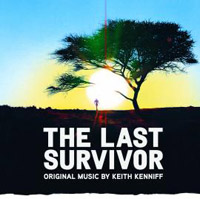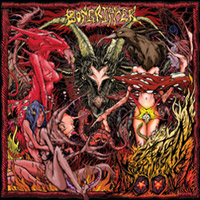Scott Morrow is ALARM’s music editor. Patrick Hajduch is a very important lawyer. Each week they debate the merits of a different album.
 Keith Kenniff: The Last Survivor (Fake Four / Circle Into Square, 10/19/10)
Keith Kenniff: The Last Survivor (Fake Four / Circle Into Square, 10/19/10)
Morrow: Screened at different independent film festivals earlier this spring and summer, The Last Survivor is a documentary film about the lives of four genocide survivors — one each from the Holocaust, Rawanda, Darfur, and Congo. Its goal is to spread awareness of atrocities around the globe but also to inspire action and get genocide survivors involved in peace movements.
The film has won a handful of awards, including best documentary at the Oxford Film Festival, and it’s still presenting its survivors’ powerful stories around the country — notably with its first university screening at NYU in late October.






 John Zorn: Ipsissimus (
John Zorn: Ipsissimus (




